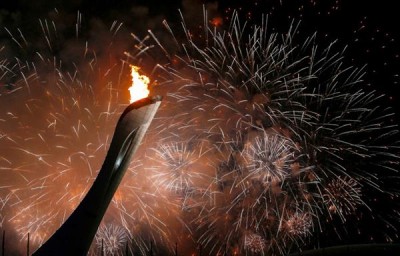The last three years have seen increased instability in West and Central Africa, with coups in Niger in July of this year, a coup last September in Burkina Faso, which had experienced another coup eight months earlier, and a 2021 coup in Mali. In each coup, military leaders rode a wave of popular anti-government sentiment over corruption, inequality, and failures in fighting Islamist (distinct from Islam as a whole) insurgents to oust leaders. These coups also marked a shift in foreign influence in West Africa. From France’s sphere of influence over its former colonies, pejoratively dubbed “Françafrique,” towards Russia, a state desperate for any support it can get against NATO and the EU in the face of the situation in Ukraine.
Burkina Faso is a nation born from political instability. It was initially formed as the Republic of Upper Volta, a self-governing state within the French community that gained full independence in 1960. In 1984, Marxist revolutionary Thomas Sankara led a coup that reshaped the country into Burkina Faso, implementing a variety of social programs to keep his authoritarian socialist government independent from outside aid. Blaise Compaoré then overthrew Sankara in 1987 and overturned many of his leftist policies, holding control until he was overthrown by a popular movement in 2014, called Burkina Faso’s “black spring,” an allusion to the 2011 Arab Spring. Roch Marc Christian Kaboré, a former member of Compaoré’s Congress of Democracy and Progress, was elected president in 2015, reelected in 2020, and deposed in 2022. Paul-Henri Damiba, his usurper, was himself overthrown by experienced soldier Ibrahim Traoré, who, at the age of 35 at the time of his ascension to the presidency, was the youngest head of state in the world.
Mali’s coups d’état in 2020 and 2021 were backed by the M5 movement and a junta, whose protests ousted President Ibrahim Keïta, whose military had been accused of human rights abuses. Assimi Goïta, a key leader in the junta who served in the Malian special forces against insurgents, took over as president. Goïta established a new constitution allowing him to dissolve parliament, supposedly making it easier for him to fight the insurgents.
In Niger, President Mohamed Bazoum was elected in 2021, succeeding his ally and fellow Nigerien Party for Democracy and Socialism (PNDS) leader Mahamadou Issoufou amid an ongoing conflict in the Sahel and public perception of government corruption. Issoufou’s 2011 election and 2016 reelection followed conflicts and a 2010 coup stemming from former president Mamadou Tanja‘s attempts to unconstitutionally hold on to power. An attempted coup led by a military unit in the capital, Niamey, was stopped with the efforts of the chief of the presidential guard Abdourahmane Tchiani. It was then Tchiani who, on July 28th, seized power from Bazoum and announced himself as the president of Niger, supposedly over Bazoum’s impending dismissal of him. On September 16th, Mali, Niger, and Burkina Faso signed an agreement to form the Alliance of Sahel States, a mutual defence pact (the same concept as NATO) directly opposed to ECOWAS (the Economic Community of West African States), which in turn has threatened an armed intervention.
ECOWAS is considered one of the “regional blocs” of the African Union, and has worked to prevent democratic backsliding in its “coup belt,” in addition to other peacekeeping efforts. Nigeria, the most populous and powerful ECOWAS member and an emerging African great power, has usually spearheaded these initiatives. France has also assisted in fighting Islamists in the Sahel, partnering with Chad, Niger, Burkina Faso, and Mali in Operation Barkhane. Mali in particular saw animosity towards the French, especially in the southern region located away from the fighting. This has included anti-French sentiment based on “Neo-Colonialism” and even conspiracy theories. French President Macron ended the operation in 2022.
There is also the context of Russian interests in Africa, where Russia’s Wagner group had previously launched operations to support regimes in exchange for wealth and/or resources, taking advantage of existing anti-western sentiment to turn public opinion against the U.S. and France and their efforts in the region. Russian President Vladimir Putin held the second Russia-Africa summit in St. Petersburg this summer on July 27th-28th, receiving support from Goïta despite other African leaders’ frustration with Putin over his unwillingness to consider implementing African leaders’ Russia-Ukraine peace plan and his ending of Ukraine’s Black Sea grain trade. According to Mali’s former Minister of Foreign Affairs Kamissa Camara, Russia’s influence on the coups is based on pre-existing desires of leaders to have more control and independence to pursue their interests, another block in their relationship with ECOWAS.
How the standoff between the Alliance of Sahel States and ECOWAS, western and Russian influence in the region, and the ongoing fight against Islamist insurgents in the Sahel will pan out remains to be seen, but the present is still very volatile.






Be the first to comment on "Upheaval in West Africa: Coups D’état, the ECOWAS Division, and the Fight for Russian and Western Influence"